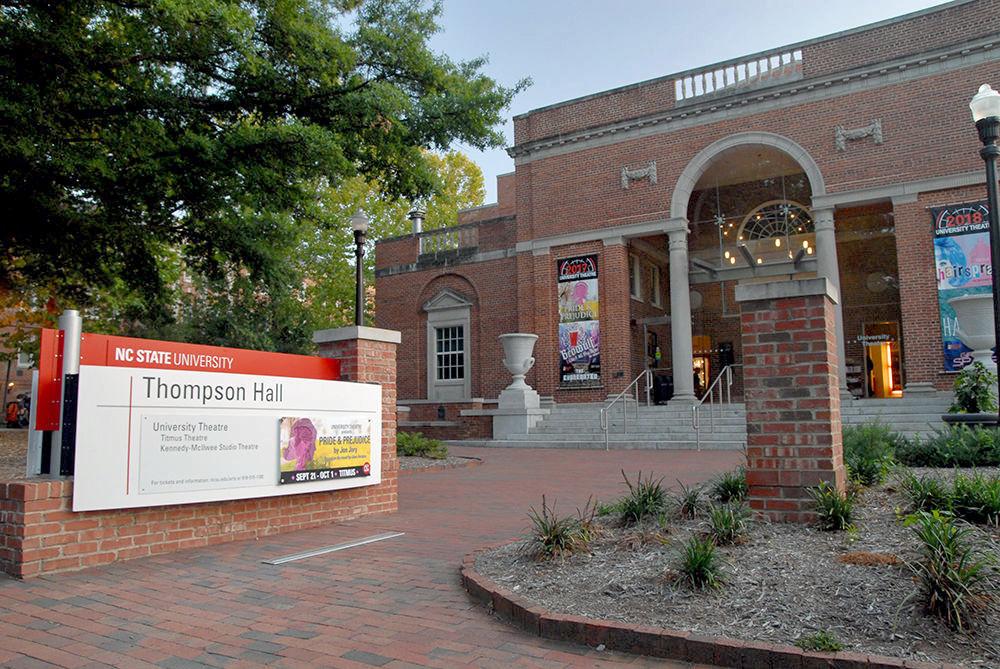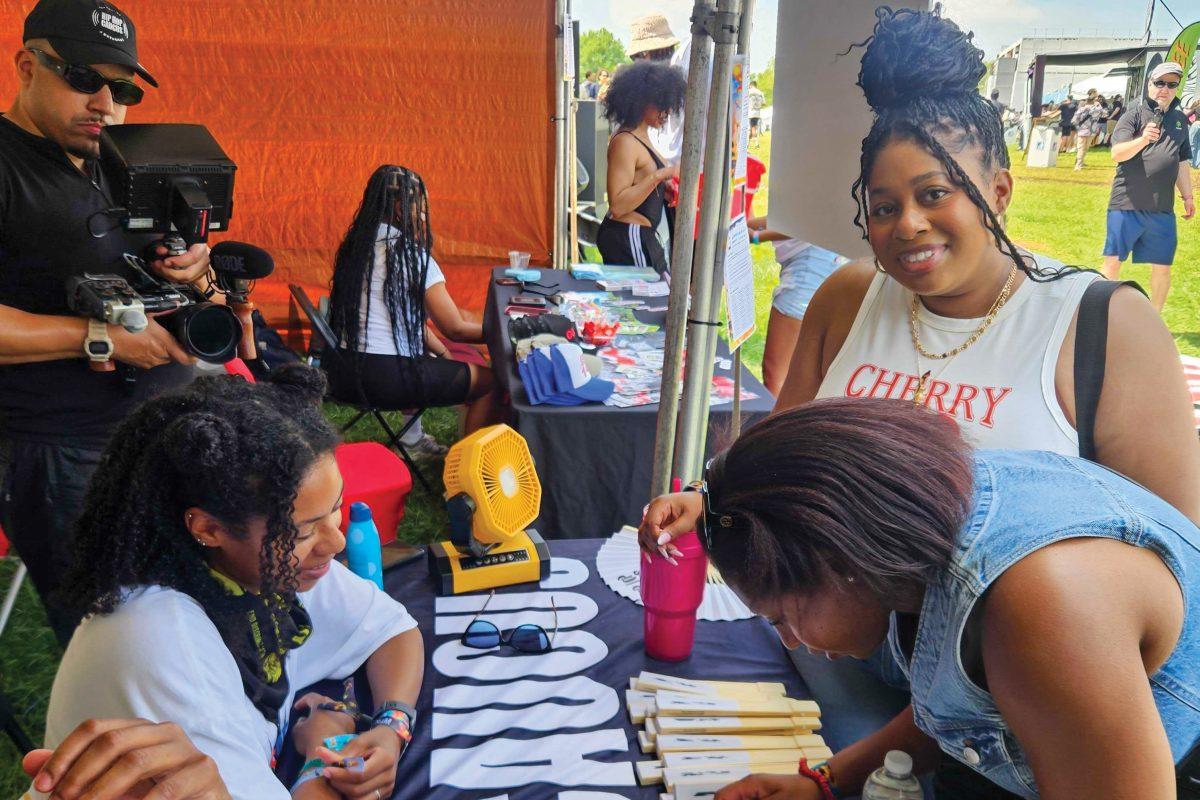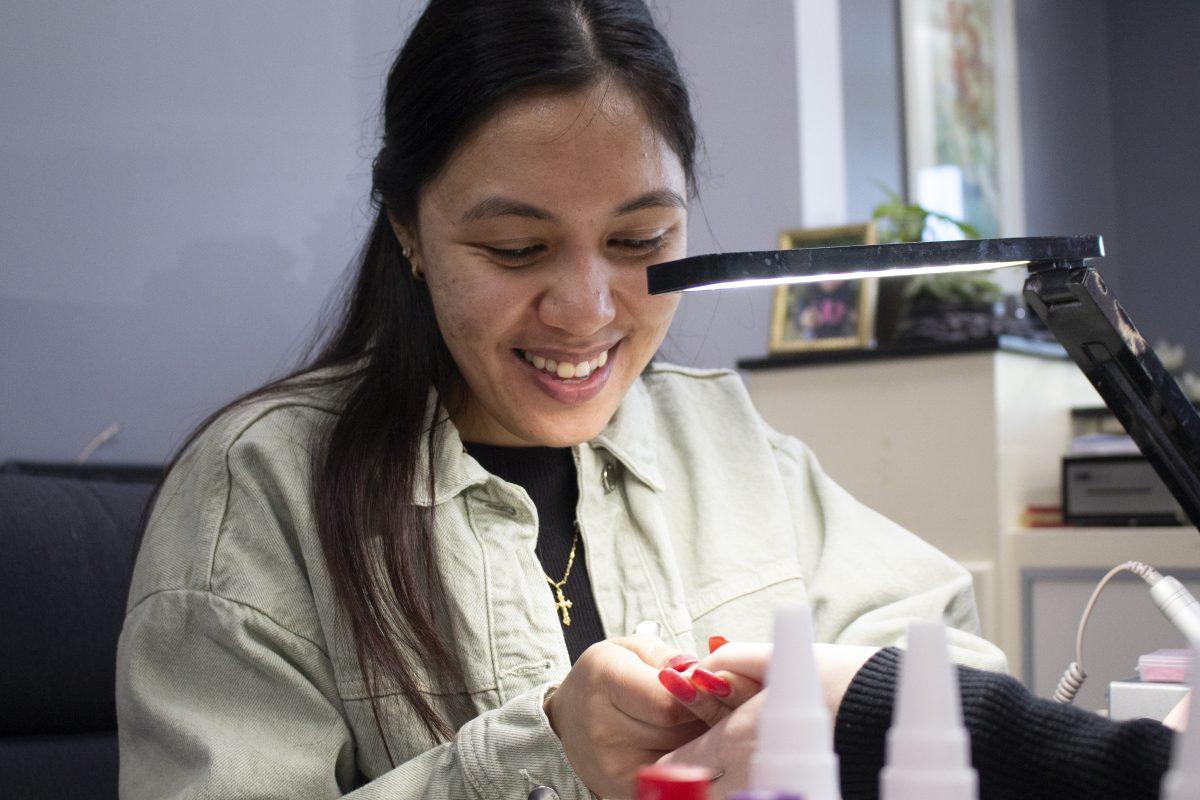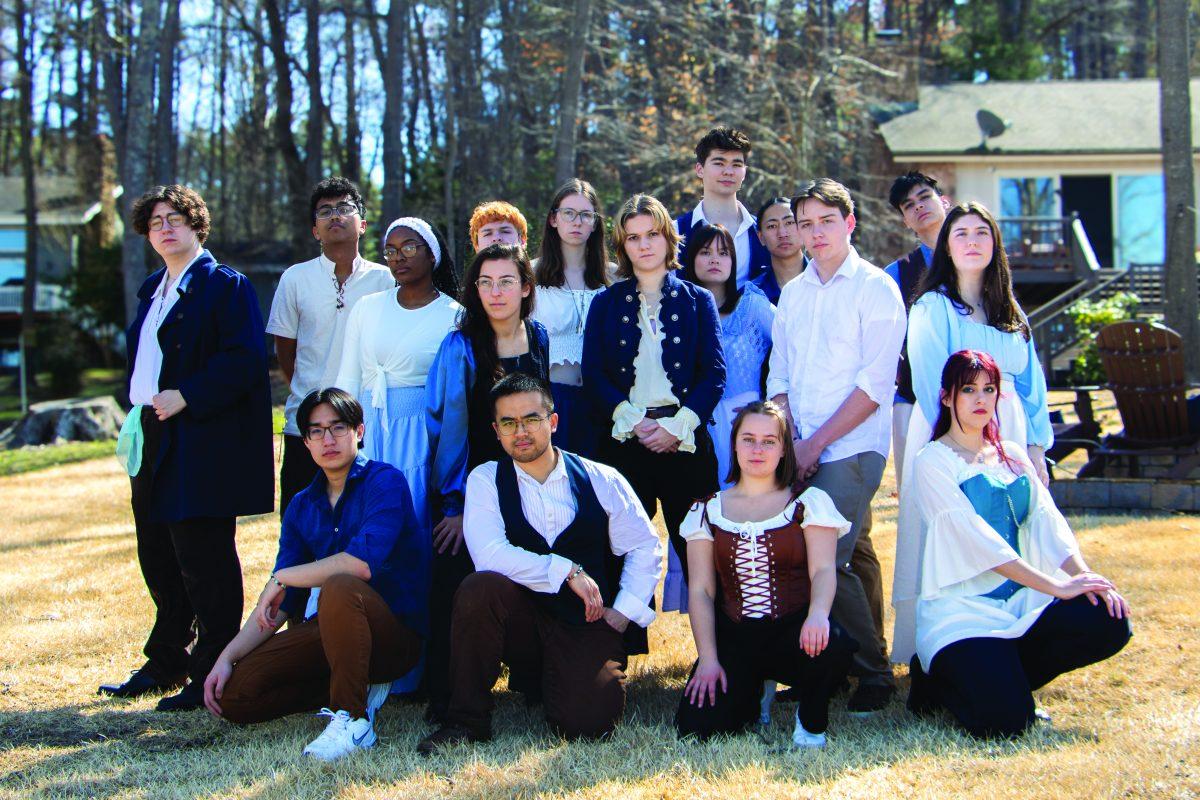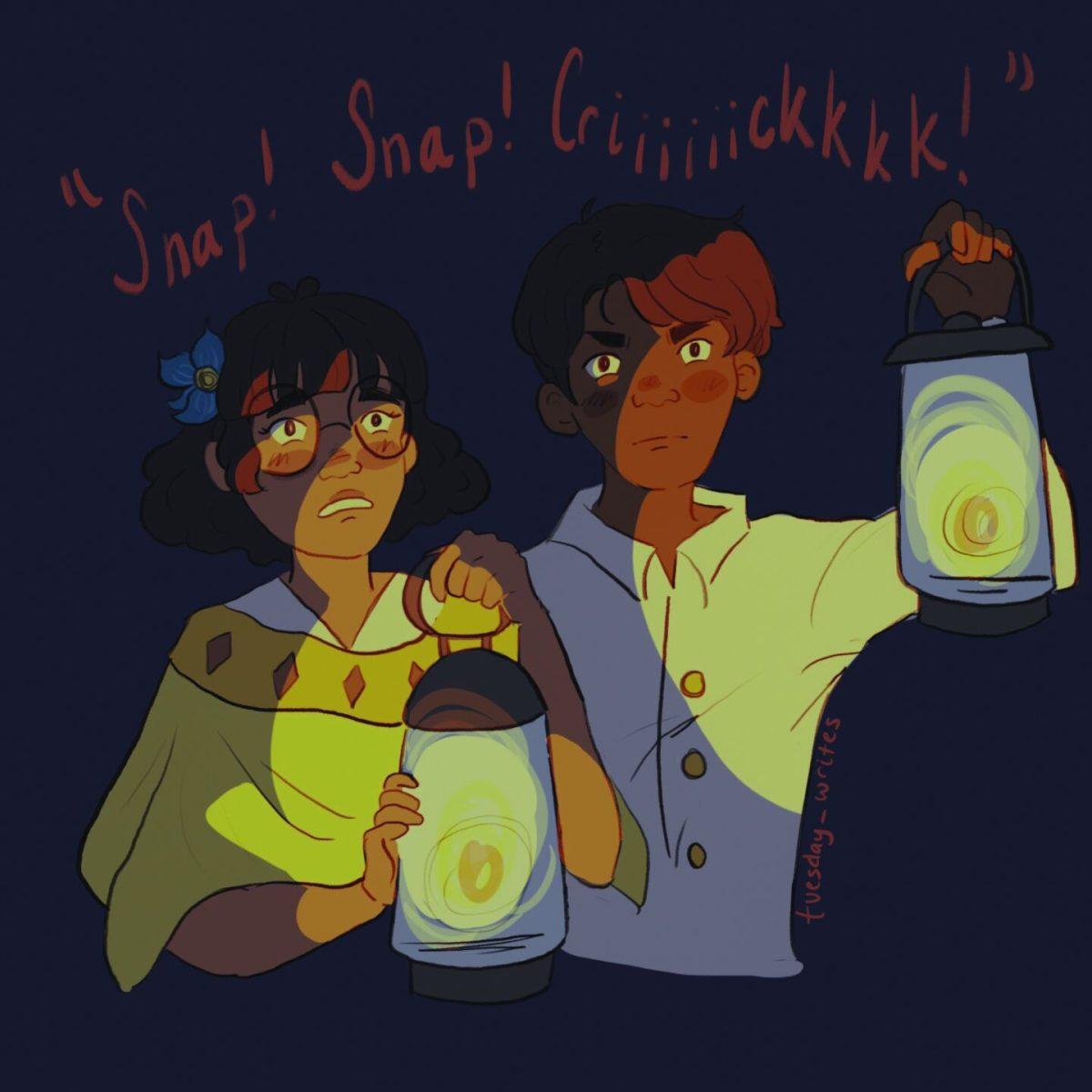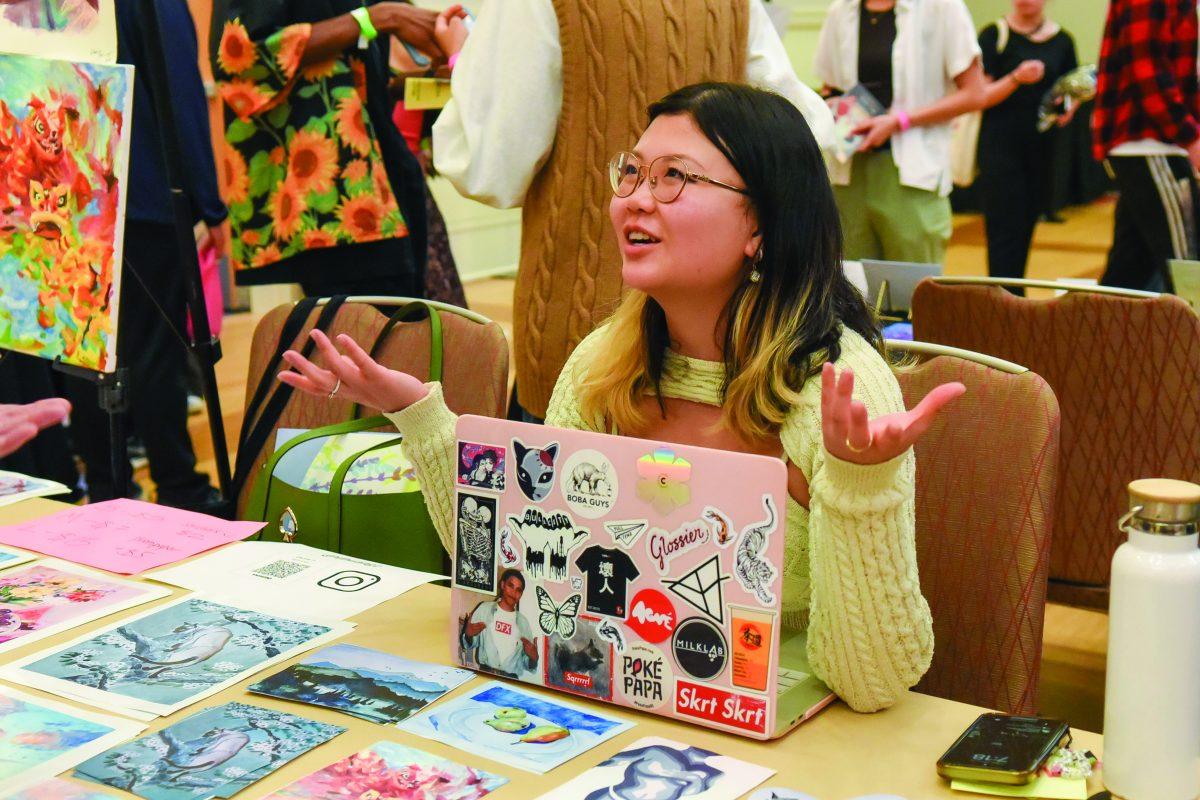Mia Self, an assistant director with the University Theater Program and a specialist in acting and directing, is the director for “The SpongeBob Musical,” which opens at Titmus Theater in Raleigh on March 31.
Regarding her entrance into theater, Self described the neighborhood productions she hosted in garages as a child, attempting to mimic the sketches she saw on TV. Additionally, she had an influential teacher in second grade who encouraged her to act in classic Shakespeare pieces.
“One classmate called me a big faker because I would open my eyes and watch the rest of the show when I was supposed to play dead,” Self said. “It’s a human response to watch and have a vision of how a story unfolds.”
As director, Self looks for the kernel of the story buried underneath the songs, set pieces and action — the emotional core an audience isn’t necessarily aware of that drives a production. She cited “The Spongebob Musical” as an example.
“SpongeBob has a real desire for human connection and to be seen as a valuable member of society,” Self said. “Sounds heavy, but it’s something we can all emotionally connect to.”
As a director, Self has conversations with every department, from costumes to scenic design. During production meetings, different department heads will bring ideas and material for Self to choose from.
“I’m more of a wayfinder than a dictator,” Self said. “They’re bringing all of their amazing creativity, and I’m just trying to channel it for the story.”
Research is another important component of Self’s work, and it varies depending on the production. For “SpongeBob,” her prep work included watching YouTube videos, reading articles and rereading the script time and time again.
“I watched ‘My Octopus Teacher’ and looked at old PBS clips with marine explorer Jacques Cousteau,” Self said. “I even looked into Japanese puppet theater to inform the cartoon movements we’re replicating in ‘Spongebob.’”
Self spoke about the challenges directors face when choosing which elements of a production stay and go. She mentioned advice from Russian director and “founder of realism,” Konstantin Stanislavski.
“We throw out about 90% of what we bring to the table,” Self said. “We bring all these ideas and elements but we’re ultimately trying to find the 10% that really serves the story.”
One of the most important aspects of directing is working with actors. Self acted professionally in graduate school and spent three years as a touring theater actor. During that time, she fell in love with teaching.
“I loved the community aspect of working with actors,” Self said. “It’s up to the director to create an environment where people can fail boldly and bring their bravest selves to a performance.”
According to Self, the best moments of her job occur when an actor successfully translates rehearsal work into a performance that resonates.
“It’s that moment where the audience holds their breath,” Self said. “Or they have that moment of recognition and spontaneously burst into laughter or applause. It’s theater at its most beautiful.”


